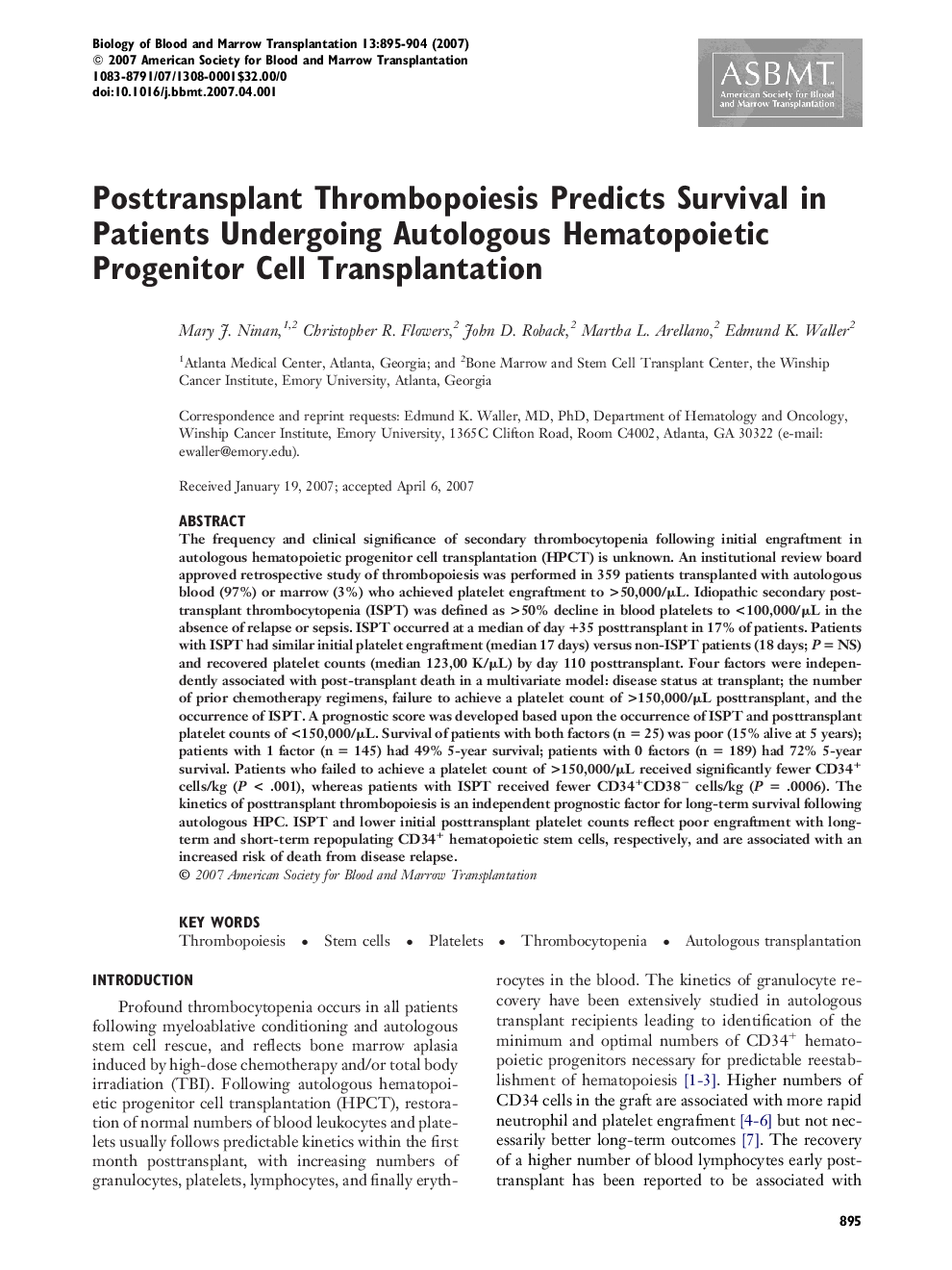| Article ID | Journal | Published Year | Pages | File Type |
|---|---|---|---|---|
| 2104303 | Biology of Blood and Marrow Transplantation | 2007 | 10 Pages |
The frequency and clinical significance of secondary thrombocytopenia following initial engraftment in autologous hematopoietic progenitor cell transplantation (HPCT) is unknown. An institutional review board approved retrospective study of thrombopoiesis was performed in 359 patients transplanted with autologous blood (97%) or marrow (3%) who achieved platelet engraftment to >50,000/μL. Idiopathic secondary posttransplant thrombocytopenia (ISPT) was defined as >50% decline in blood platelets to <100,000/μL in the absence of relapse or sepsis. ISPT occurred at a median of day +35 posttransplant in 17% of patients. Patients with ISPT had similar initial platelet engraftment (median 17 days) versus non-ISPT patients (18 days; P = NS) and recovered platelet counts (median 123,00 K/μL) by day 110 posttransplant. Four factors were independently associated with post-transplant death in a multivariate model: disease status at transplant; the number of prior chemotherapy regimens, failure to achieve a platelet count of >150,000/μL posttransplant, and the occurrence of ISPT. A prognostic score was developed based upon the occurrence of ISPT and posttransplant platelet counts of <150,000/μL. Survival of patients with both factors (n = 25) was poor (15% alive at 5 years); patients with 1 factor (n = 145) had 49% 5-year survival; patients with 0 factors (n = 189) had 72% 5-year survival. Patients who failed to achieve a platelet count of >150,000/μL received significantly fewer CD34+ cells/kg (P < .001), whereas patients with ISPT received fewer CD34+CD38− cells/kg (P = .0006). The kinetics of posttransplant thrombopoiesis is an independent prognostic factor for long-term survival following autologous HPC. ISPT and lower initial posttransplant platelet counts reflect poor engraftment with long-term and short-term repopulating CD34+ hematopoietic stem cells, respectively, and are associated with an increased risk of death from disease relapse.
